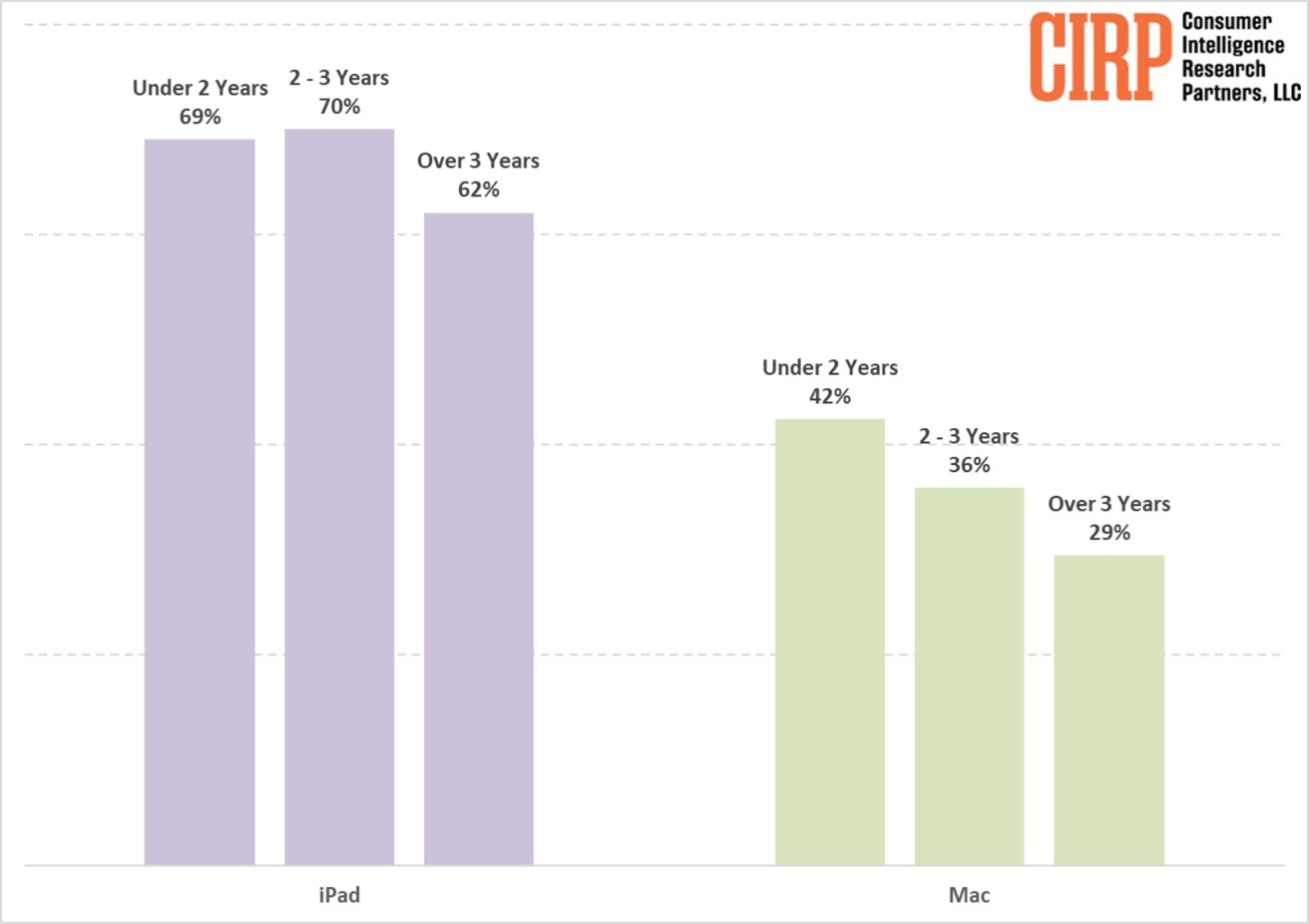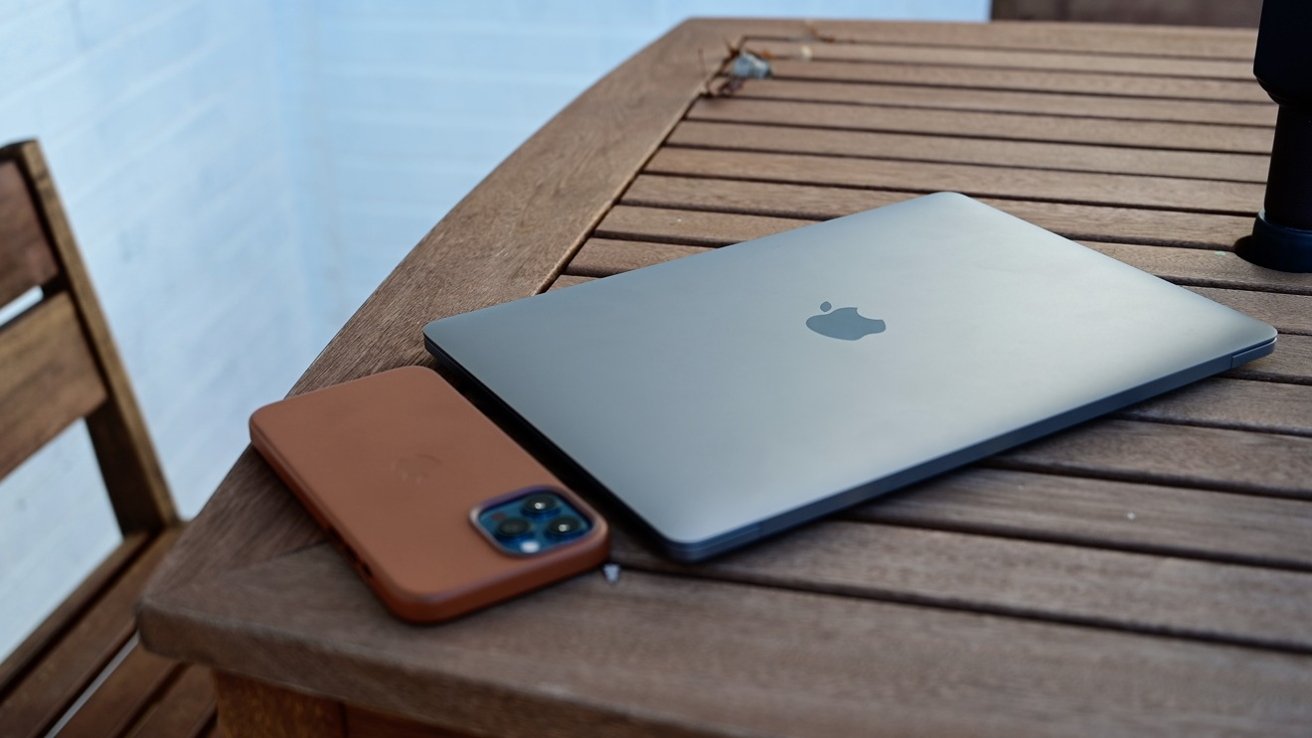Frequent iPhone upgraders aren't just loyal to their smartphones — they're building entire personal device ecosystems with iPads and Macs at the core.
According to recent data from Consumer Intelligence Research Partners (CIRP), iPhone buyers who upgrade their phones more frequently — specifically within two years or less — are more likely to own additional Apple products, such as iPads and Mac computers.
These customers are described as the "fastest upgraders," and they show a distinct pattern of behavior that sets them apart from those who hold onto their iPhones for extended periods. For example, approximately 67% of all iPhone buyers also own an iPad, and 36% own a Mac computer.
However, these figures vary significantly when you segment the data based on how quickly consumers upgrade their iPhones. Of those who replace their iPhones every two years or less, and do it early in the cycle, CIRP says that 69% own an iPad, and 42% own a Mac.
In contrast, among those who have kept their iPhones for three years or more, CIRP says that only 62% own an iPad, and a mere 29% own a Mac.
 Ownership of iPads and Macs among iPhone buyers, segmented by the age of their previous device (data for the twelve months ending June 2024)
Ownership of iPads and Macs among iPhone buyers, segmented by the age of their previous device (data for the twelve months ending June 2024)One reason behind the higher ownership rates of iPads and Macs among fast upgraders could be the cost and availability of alternatives. Apple iPads, for example, have a longer lifecycle than iPhones and are more affordable, making them an easier addition to a person's tech collection.
Conversely, Macs are more expensive and face direct competition from less costly Windows PCs and Chromebooks. As a result, Mac ownership is a strong indicator of loyalty to the Apple brand.
Additionally, the frequency with which consumers upgrade their iPhones may reflect their overall spending on technology. Those willing to upgrade their phones frequently will likely invest in other high-end Apple products.
What this means for Apple's market strategy
These insights offer valuable implications for Apple's market strategy. The company can leverage the loyalty of fast upgraders by targeting them with early access to new products or exclusive offers on accessories like iPads and Macs.
The strategy rewards their loyalty and encourages further investment in the Apple ecosystem.
Moreover, understanding the behavior of slower upgraders — those who keep their iPhones for three years or more — can help Apple identify opportunities to engage these customers more effectively, such as with so-called "supercycles."
Offering Trade-in deals or promoting the benefits of the integrated Apple ecosystem could encourage these consumers to upgrade more frequently and explore additional products.
"It seems that the speed at which an iPhone owner upgrades from their old phone, or conversely the length of time they hang onto their old phone, helps to identify what kind of Apple customer they are," ponders CIRP. "Frequent upgraders, those owning a phone two years or less, appear to be more active Apple customers, while the more patient upgraders appear less committed to the Apple ecosystem."
 Andrew Orr
Andrew Orr







-m.jpg)






 Malcolm Owen
Malcolm Owen

 Charles Martin
Charles Martin


 Mike Wuerthele
Mike Wuerthele
 Christine McKee
Christine McKee


-m.jpg)






5 Comments
It definitely makes sense.
What I think though is that Apple is looking limiting sales by keeping prices so high internationally.
In the US the entry level iPhone is only $600 but elsewhere, like here in Europe, it's more. We pay €750.
Apple needs to have an SE entry model at no more than €500 incl.VAT to help those of us with limited finances to be able to buy one. Do the same across the board:
Watch SE, iPad SE, Air pods SE.
That will help many more people who WANT Apple products to get into the ecosystem.
Go to eBay UK and search for iPhone 13 and you'll see that hundreds of people have a used iPhone 13 in their basket. They're waiting for it to drop but the demand is high.
Apple could have WAY more market share if they catered to us less wealthy.
Quite funny, You sound like an anti-Mac person.
"
My friend is committed to PC and Samsung. His PC with similar features cost the same as my MacBook
Yes there are lower end products available, but Apple does not sell them. Macs do not cost more than comparable PCs.